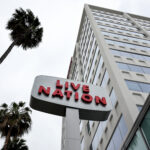The New York City Council is looking for ways to shut down certain fraudulent medical clinics that critics say take advantage of the state’s no fault insurance system and drive up auto insurance rates.
One prominent critic, the Property Casualty Insurers Association of America, urged the Consumer Affairs Committee to pass Introduction Number 243A, a bill to help close the doors on medical mills and dismantle no-fault fraud organized crime enterprises.
“New York state’s no-fault fraud problem is among the worst in the nation, with no-fault fraud costs reaching $1 billion per year when the problem was at its worst,” maintained Kristina Baldwin, PCI regional manager and counsel.
“The epicenter of this problem is New York City and its environs, where no-fault fraud criminal operations have become highly organized enterprises which serve to drive up auto insurance premiums in the down state area to at or near the highest in the nation.”
The bill PCI supports requires medical clinics to report their ownership and management information as well as claims information in treating predominantly no-fault patients.
The bill also prohibits individuals from acting as runners and would prohibit no-fault clinics from employing or otherwise using runners. Runners solicit individuals to participate in staged accidents and coordinate the billing for fraudulent no fault services.
“Not only is this practice illegal and unsafe but it is harmful to New York drivers who are forced to pay higher premiums as a result of this practice,” said Baldwin.
The insurance company trade organization requested one refinement be made to the legislation, a change it suggested would assist in further reducing no-fault fraud costs. It recommended that any civil penalties collected be applied for restitution where the violation is traceable to a specific claim payment by an insurance company. This would ensure the insurance companies receive reimbursement for payments made by fraudulent individuals or organizations, PCI said.
Source: PCI
Was this article valuable?
Here are more articles you may enjoy.

 Carriers See Higher Claims Severity Amid Medical, Social Inflation and Growth in AI‑Generated Fraud
Carriers See Higher Claims Severity Amid Medical, Social Inflation and Growth in AI‑Generated Fraud  Bayer’s $7 Billion Effort to End Roundup Curse Draws Skepticism
Bayer’s $7 Billion Effort to End Roundup Curse Draws Skepticism  Live Nation’s Settlement Efforts Stalled Ahead of DOJ Trial
Live Nation’s Settlement Efforts Stalled Ahead of DOJ Trial  Gas-Guzzler Revival Risks Dead-End Future for US Automakers
Gas-Guzzler Revival Risks Dead-End Future for US Automakers 